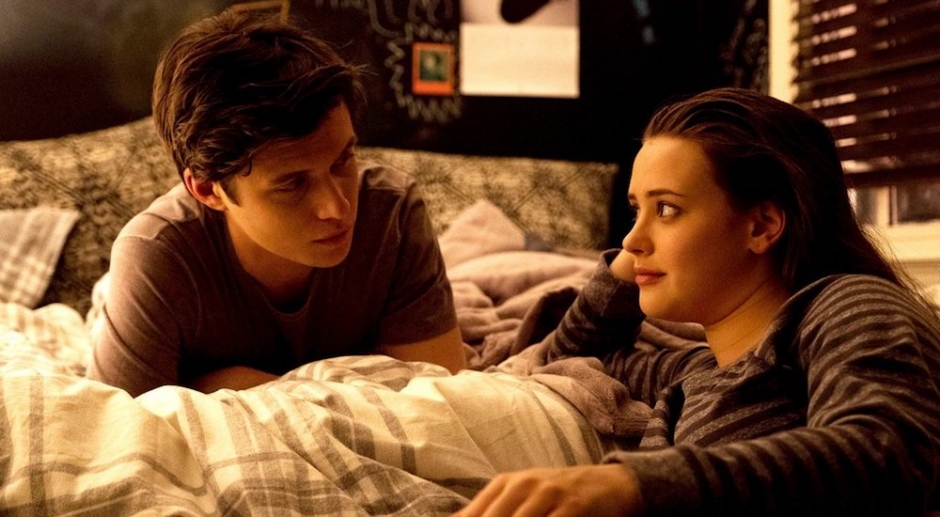 The Problem With Male-Dominated Lineups - A Personal StoryA grass roots level examination of what it's like watching all male lineups do their thing.
The Problem With Male-Dominated Lineups - A Personal StoryA grass roots level examination of what it's like watching all male lineups do their thing.

Love, Simon & The Importance Of A Mainstream Queer Coming-Of-Age Story
The film arrives this Thursday riding a wave of positive reviews.
We've linked up with 20th Century Fox to mark the release of Love, Simon, in cinemas March 29. After an in-depth look at the film's soundtrack, today writer Ben Freeman looks at the film as an important coming of age story in a universal sense, and its impact on him as a young member of the LGBT community.
I’ve been watching films religiously all my life. Once I was propelled into the realms of teenager-dom, I searched for films which had characters, the same age as I, who asked the same questions as I. I’ve watched the misfits in The Breakfast Club ponder what it means to be young, I’ve cried through Hazel and Augustus’s tragic romance in The Fault In Our Stars and I’ve thrived on Cady Heron’s meteoric rise to popularity in Mean Girls. Yet, there had never been a coming-of-age film where I had characters truly like myself, on screen, until Love, Simon.
Directed by Greg Berlanti, based off the book by Becky Albertalli, Love, Simon follows Simon Spier, a closeted gay teen, who struggles with how and when he will tell his friends and family he’s gay, all while he’s pursuing an anonymous email romance with another closeted guy from his school.
Love, Simon is funny, simultaneously heartbreaking and warming, yet quite noticeably, slick. It’s a big budget, big studio film and has a SOLID cast (love u mum @Jennifer Garner). Tonnes of teen films have been blessed by the backing of a tentpole studio, but so rarely have these studios diverged from straight romance and relationships. I had a cheeky cry when I first watched the trailer for this film, and I continued to weep the next 12 times I repeated it. Something about hearing a gay character's internal monologue in such a mainstream trailer was wildly overwhelming and so goddamn refreshing.
Queer cinema has improved gigantically in the past ten years, with recent trailblazers like Moonlight, Call Me By Your Name, and Blue Is The Warmest Colour providing layered, human and honest portrayals of the Queer experience, but, targeted towards adults. It can be argued that Call Me By Your Name crossed over into the teenager demographic as a result of the Timothée Chalamet hype train, but its filmmaker’s intentions were always to make a mature arthouse film – a genre which can potentially value individuality over relatability. Which is why Love, Simon is a such a breath of fresh, teen, gay air.
I got to see the film last month, sitting next to one of my best friends, the person I first came out to. When I first came out, it was in her car, I had been crying, she wanted to know what was wrong, and I wanted to tell her, but the words I had been whispering to myself for years upon years couldn’t be formed into a sentence. When I finally told her, I burst into ugly tears, and so did she.
As we sat down for the film I knew it was going to be special, but was shocked at how different and satisfying the experience was, watching a movie with a protagonist and supporting characters, so eerily similar to myself. My friend and I had to stare at each other for a second when a coming-out scene played out almost exactly to my own, minus the ugly tears.
Is this how straight people always feel?
Before seeing a film like Love, Simon, I considered these kind of stories and these kind of moments as singular, something that only very few people were faced with, and therefore, unrelatable. Love, Simon's power lies in making these stories universal. Transcending moments that are so ingrained in the LGBT experience into a cinematic journey, something that blockbuster films hadn't yet attempted. Teen relationships have been explored time and time again in film, but have historically been locked into heterosexual stories. Straight love stories do have the power to prove that romance is real! That everyone deserves a true love! That even if your heart is broken, time will pass and you’ll be okay! Super surprisingly, gay love stories have the power to tell everyone the exact same thing. But on top of that, they tell young people that they are worthy. That they are not an oddity. They have the power to tell LGBT+ kids who are five times more likely to attempt suicide, that their stories and voices are valid. They are able to provide a story for the people who maybe need it the most. Some of my favourite films are cheesy, straight love stories, but, when an entire genre of film has been so restricted by heterosexual relationships, it should be regarded a triumph when a giant studio is finally smart enough to present a gay story and relationship to the masses.
The film is clever and witty in so many respects, but Love, Simon’s biggest strength lies in understanding the importance of coming out as a defining moment in a gay person's life. (Spoilers) When the antagonist of the film Martin (who is the LITERAL worst) threatens to expose Simon’s sexuality to the school, my throat welled up. The film took me back to a time where I was hidden, and the uncertainty and stress that was all-consuming. Simon so brilliantly relays to Martin how important the ownership of his coming out moment is, yelling at him, “I’m supposed to be the one who gets to decide when and where and who knows and how I’m going to say it – that’s supposed to be my thing!” When Simon finally comes out, his mother expresses so concisely the feeling of being free, telling her son “you finally get to exhale".
Love, Simon is special. It’s special because it’s realistic. It’s special because Simon is never presented as a caricature of what a gay teen is perceived to be. He is never restricted by the stereotypes of his sexuality but the film also never dismisses them. It’s special because, for generations, LGBT youth have never had a protagonist in a film that mirrors them completely and unapologetically.
After coming out to my best friend, she hugged me from the driver's seat and told me everything was going to be sweet, that I’d be okay. Watching Love, Simon gave me that same feeling.
*cue ugly tears*
Ben Freeman is a freelance writer, having contributed for JUNKEE and Project U. You can follow him on Twitter here: @b3nfreeman.
Header image via 20th Century Fox.
 The Problem With Male-Dominated Lineups - A Personal StoryA grass roots level examination of what it's like watching all male lineups do their thing.
The Problem With Male-Dominated Lineups - A Personal StoryA grass roots level examination of what it's like watching all male lineups do their thing.
 How should we remember XXXTentacion after his death?Hip-hop's "next big thing" was killed overnight, but how do we mourn an artist plagued by allegations of abuse?
How should we remember XXXTentacion after his death?Hip-hop's "next big thing" was killed overnight, but how do we mourn an artist plagued by allegations of abuse?